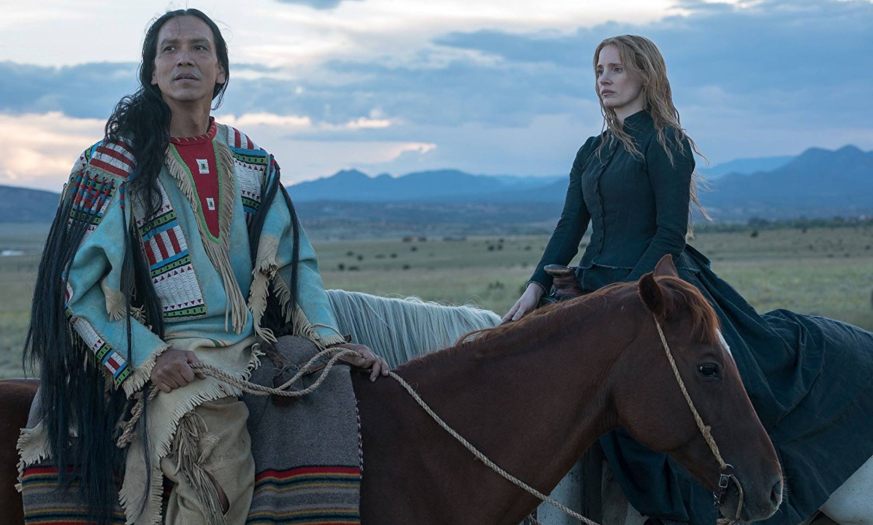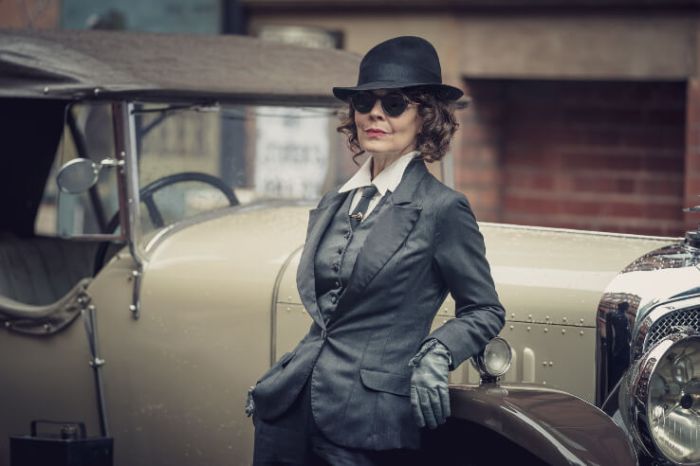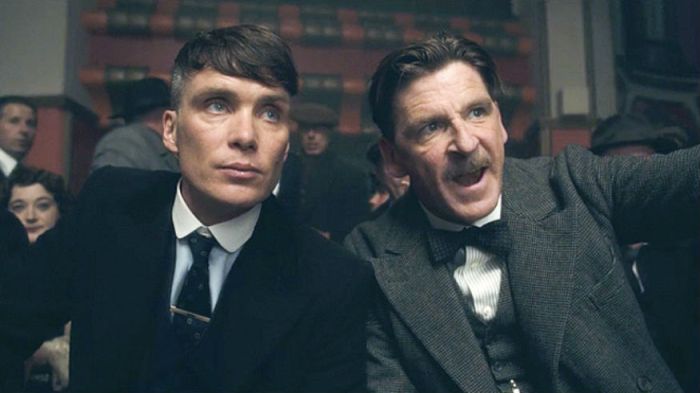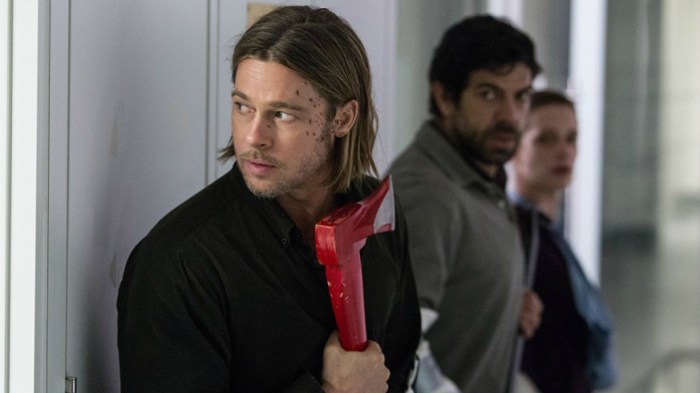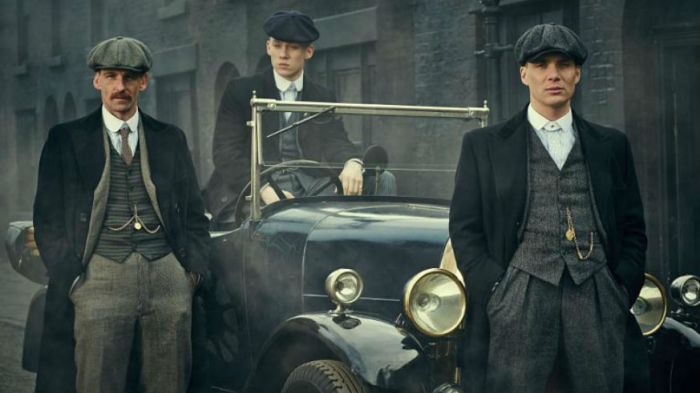Steven Knight isn’t the writer you’d expect to bring the story of Caroline Walden to the big-screen.
But even though he was born and raised in England, Knight has long had a deep fascination with Native American culture, specifically the artist and her journey to South Dakota to meet and paint the iconic Sitting Bull.
This interest was so ingrained that during my recent discussion with Knight he admitted that he has been wanting to tell a story of the kind of “Woman Walks Ahead” since he was 10.
In fact, he even wrote the script back in 2004, which was the first time he could genuinely foresee it being made as his filmmaking career was just taking off.
Then, there was a long period of nothingness.
But good things come to those who wait, because the sudden interest of Jessica Chastain and director Susanna White meant that nearly 14 years after writing it, Knight has finally seen “Woman Walks Ahead” brought to life with the perfect mesh of creative people at its core.
When did you start on “Woman Walks Ahead”?
The idea I have had for so long. I was quite an odd child. I grew up in England but with a fascination for Native American history. From the age of about 10 I started to consume every book that was ever written, I was a junior member of the American Indian museum in New York, and I wrote off to a school in South Dakota on the Standing Rock reservation and became pen-friends with Dakota children of my age. I was 12 or 13. In that research and reading I came across the true story of Caroline Weldon. I just always thought it was fascinating. Then when I became a writer it was just always the story that I wanted to do. Incredibly I wrote it just after “Dirty Pretty Things.” So 2004, so it has been a long road to getting it made, and I am so pleased that it is finally now out there.
How did that fascination originate?
Partly it was watching TV. But also my dad was a blacksmith, he used to shoe horses. So we were around horses a lot. I used to go with him and help him shoe, and work with him. For some reason when I saw on the TV Native American culture, and the horses, and the way they were, it rang a bell with me. And it was my major interest for a good 10 years. Then you go off to university and forget all about it. But it was always something that stuck with me. And I always wanted to tell this story. As you grow older you start to understand Catherine’s journey, and how brave it was for an adult in that position and in that society to do what she did. And also Sitting Bull and Crazy Horse were my heroes as a kid. But as you get older you realize that these were real people, with families, and had different options. They could have taken the easy path. But they never did. And it just increases your admiration for these people. When you are a writer you have got these stories in your memory banks, and you’re like, ‘I have got to write this.’ And that’s what I felt about “Woman Walks Ahead.”
How has it evolved over the last 14 years then?
There’s a couple things. For me, it is like fishing. I quite like to go fishing. You write something and you cast it out there. Then along the way, every 2 or 3 years someone will take an interest in it, it will nearly get developed. The movie industry is so fragile and odd and unstructured that there is no logically path from script to production. It always goes through some rigmarole. Unless it is a Marvel script. But this one was around for a long, long time. Then suddenly I heard that Jessica Chastain was interested and Susanna White. It sort of reaches its moment when people are interested. But it also reaches its moment when it becomes more relevant than it was before. And now I think it has never been more relevant. So I think movies find their time. And when their time comes they get made.
What did you want to explore that you hadn’t seen on screen before?
I wanted to portray the West of that time in a more realistic way. Because it was the end of the frontier. And the truth is so much more interesting than the cliche. It was a reaching, gear change for a whole society of Native Americans that had lived this particular life and then suddenly within 40 years everything was taken away. And everything was turned on its head. And the leaders of that society had to adapt and had to try and cope with it. Just looking at a society that goes from a hunter gather society to pretty much the time when the frontier ended, 8 years later there were automobiles, and then 8 years after that there were airplanes. Which was such a massive change for people. I wanted to look at the way that was dealt with by a whole society.
What was the route when the film started to pick up momentum when Jessica got involved?
It was a combination of both Jessica and Susanna. It is always good to get a star. That’s just the currency of Hollywood. So it was great to get Jessica. And it is always great to get a director that everyone has faith in. Which is what Susanna had. People knew it wasn’t going to fall apart, it wasn’t going to badly handled. So suddenly you have something that is attracting attention. We also had a great actor in Michael Greyeyes, which was a thing we had to get right. But amongst the people from Dakota, Sitting Bull is Nelson Mandela, Martin Luther King, he really is the icon of that society. Alongside Crazy Horse. You can’t take it lightly making a film of that person. Thankfully, we had so much support and so much encouragement for the film from the Dakotans. There was a screening in Rapid City and people travelled 15 hours, 16 hours, to get there from reservations all over the state.
What year did Jessica get involved?
Quite recent. I mean, it is like war. Most periods are quiet and then there’s excitement. So as soon as it becomes quite viable things happen quickly. I probably met Jessica to talk about it 2 years ago. And then after that it all happened quickly.
Did you have to dust off the cobwebs, so to speak, to discuss the film with her?
It is sort of like that. I don’t know. It is also not like that in the way that the script actually exists. It is an object. You then want to do things differently. And you do, you change things. Interestingly the original script was the one that people liked the most. I think theres a freshness about the first draft. I am a big believer in always considering the first draft. Because Hollywood has a tendency to go over and over and make you do a load of different drafts and it becomes a bit of a mess.
Once you spoke to Jessica, and the climate you were now making the film in, what were some of the changes you made then?
Keeping the essence of the first draft, but when you know that you have actors of the calibre of Jessica and Michael you can adapt it with the confidence that they can do certain things. And they can stretch it. The biggest difference was writing it knowing who was going to perform the parts. And then changes just naturally happen.
Were you on set a lot?
Not at all. I think, because I direct as well, and if I am not directing I think the writer is an appendage. If you go one day a week even, that’s not enough and it is too much. Because you can’t just turn up one day, make a comment, and then not turn up the next 5 days. I think it is best that if you are the writer you just leave the director to it. With the caveat that you state, ‘Be gentle with the script. And if there are changes, consult me.’ Which is exactly what happened.
In your meetings with her, what did you see that Jessica was going to bring to the role?
Strength. The strength that she brought to it. So, at no point was there going to be a suggestion that this character was weak. She can be uncertain, but would triumph that. Because she had a very strong way about her. And that was essential, because I think Catherine had that, too. So they were matched brilliantly.
Looking at your credits over the last few years you have been so prolific, talk about the recent deluge of projects you have had released. Were they all written a while ago?
It is a mixture. A lot of the stuff I am writing now I am writing fresh. The TV revolution has been good for me. I love the longer form. I love having 24 hours to develop a character rather than 90 minutes. So television really has excited me and I have written lots of different things, and more to come on TV. With film, it is almost now, for me, TV is a novel and film is more like a short story. In the sense of what you can and can’t do with it. So there are certain things that are and should be a short story. I just directed a film with Anne Hathaway and Matthew McConaughey that comes out in October. And it is a beginning, middle and end. Bang, bang, bang. And you can do that. But with TV there are bigger stories. But there are also scripts out there that I have written over the last 10 years that when certain things get successful they get rediscovered. So they also start getting made.
Then there’s stuff like “World War Z 2.” What was your involvement in that?
It is the classic Hollywood, I love Hollywood for what it is. And you have to deal with it in a particular way. In other words, you have your passionate projects, which is where you have your own idea and you want to control it. Then you get approached, and the money is good so you always consider it. You get approached to do “Tomb Raider” and “World War Z” and “Narnia.” And what you do, and what you have to understand going in, is that you do your draft, you do your second draft and third draft, and whatever comes from that they will put another writer on it and another writer and it goes through a system of adaptation. It works for Hollywood. It is not my favorite way of working. With “World War Z” I was approached. I did the first version of it. And then whatever comes out when it gets made, you’ll see that 60% of it is yours and feel happy. The other reason film is different is that as the writer you’re not really day to day involved in how the thing develops. You submit your script and that’s it. That’s fine. You know that. That’s what happens.
Is that why you moved into something like “Peaky Blinders” then, to get control?
Yeah, it gives you time and control, which is great. Time to develop characters. To tell a big story. Just like a novel. To tell a big saga. Which you really can’t do with a biopic. Telling the story of someone’s life in a TV series is a lot easier. But films are great. I loved doing films, getting in there, doing it, getting it done, and making it for the big screen and making a big splash, but TV is the long form.
“Woman Walks Ahead” is released on Friday.

